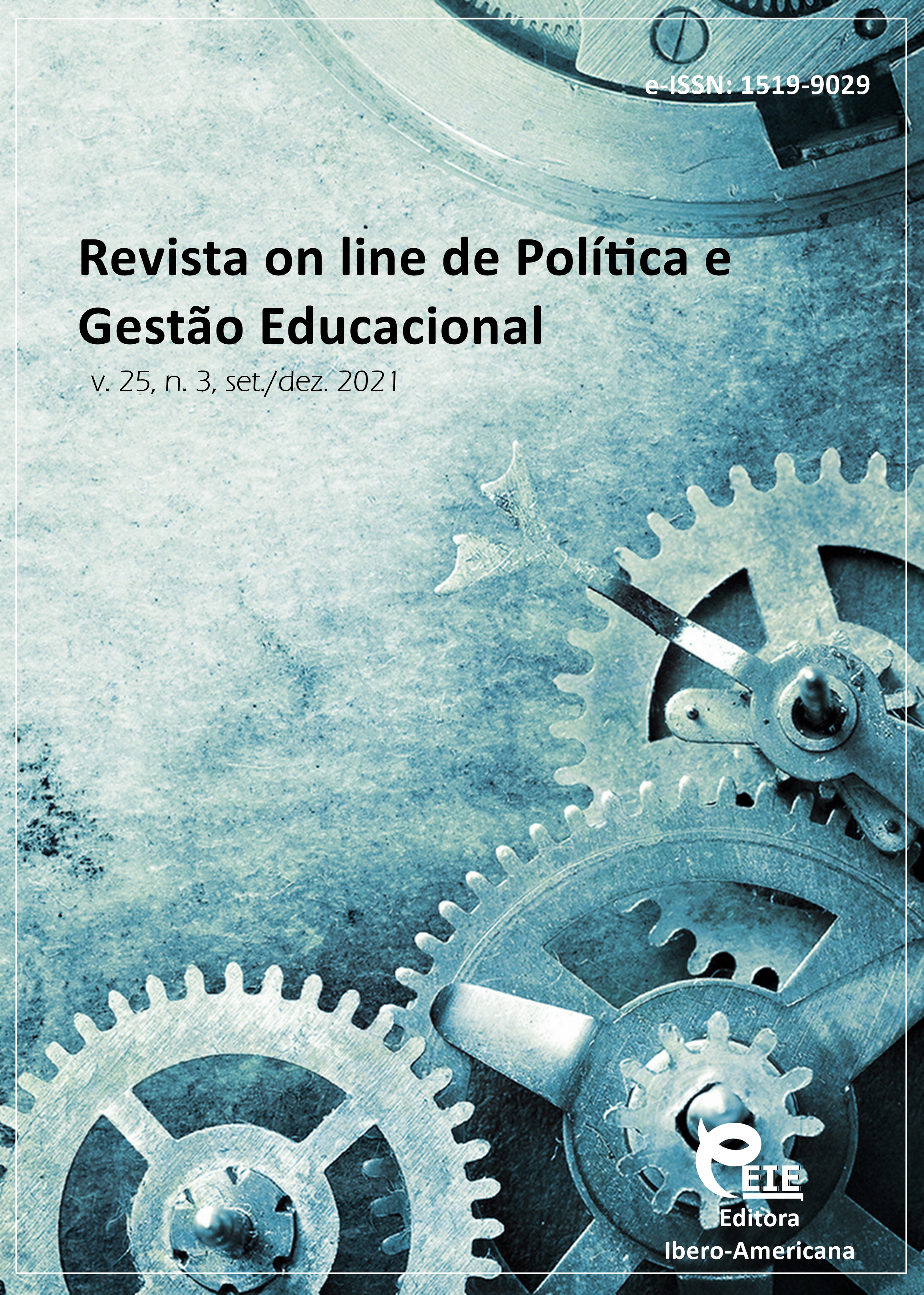Designing the mathematics educational process in the context of education metadisciplinarity
DOI:
https://doi.org/10.22633/rpge.v25i3.15989Keywords:
Educational standards, Interdisciplinarity, Metadisciplinarity, Supra-disciplinarity, Axiomatic approachAbstract
The article is devoted to one of the current issues – the problem of educational process design. Among the Russian educational space innovations, a special place belongs to the metadisciplinary direction, new for domestic pedagogy. Comprehension of the metadisciplinarity category both in the theoretical aspect and applied from the position of the modern view becomes especially important. To some extent, the complexity of the problem is determined by the ambiguous translation of the prefix “meta.” Recently, there have been many studies devoted to metadisciplinarity. The analysis of scientific works on this problem showed no single point of view on this issue. The axiomatic approach is proposed as one of the options for building an educational strategy in the metadisciplinary field. This study aims to show the possibility of using the latter in designing the mathematics educational process as part of implementing the metadisciplinary direction of the educational standards.
Downloads
References
ASMOLOV, A. G. System-activity approach in developing new generation standards. Pedagogy, v. 4, p. 18-22, 2009.
BOROVSKIKH, A.V.; ROZOV, N. Activity principles in pedagogy and pedagogical logic: Handbook for the system of professional education, retraining and advanced training of scientific and pedagogical staff. Moscow: MaksPress, 2010.
COTNER, S.; BALLEN, C. J. Can mixed assessment methods make biology classes more equitable? PLoS ONE, v. 12, n. 12, p. 1-11, 2017.
DANSO, J. Developing students’ independent skills through the use of Assessment for Learning strategies: How does this affect engagement? Oxford: University of Oxford, 2017.
DEGTYAREVA, N. V. The value of metadisciplinary content in forming professional competencies. Interactive Science, v. 11, p. 46-47, 2017.
FABIANO, J. A.; REDDY, L. A.; DUDEK, C. M. Teacher coaching supported by formative assessment for improving classroom practices. School Psychology quarterly, v. 33, n. 2, p. 293-304, 2018.
FURTAK, E. M. et al. Theachers’ formative assessment abilities and their relationship to student learning: findings from a four-year intervention study. Instructional Science, v. 44, p. 267-291, 2016.
KAPSALIS, G. et al. Evidence of innovative assessment: literature review and case studies. Luxembourg: Publications Office of the European Union, 2019.
KHUTORSKOY, A.V. Five levels of implementation of the metadisciplinary approach in the content of education. Bulletin of the Institute of Human Education, v. 2, 2017.
KULASEGARAM, K.; RANGACHARI, P. K. Beyond “formative”: assessments to enrich student learning. Advances in Physiology Education, v. 42, p. 5–14, 2018.
MARZANO, R. Using Formative Assessment with SEL Skills. Handbook of Social and Emotional Learning: Research and Practice, 2016.
MONAKHOV, V. M. Didactic axiomatics of the cognitive theory of pedagogical technologies. Modern Information Technologies and IT-education, v. 12, n. 3-1, p. 32-39, 2016.
MUSINA, A. A.; SHESTAKOV, A. P. Metadisciplinarity in primary general education. Yaroslavl Pedagogical Bulletin, v. 3, p. 53-56, 2017.
O’KEEFE, B.; LEWIS, B. A look forward on innovation testing systems. The state of assessment. – Bellwether Education Partners, 2019.
RYMANOVA, T. E. Axiomatic approach to implementing the metadisciplinary component of the new educational standards in mathematics. Vestnik of Orenburg State Pedagogical University, Electronic Scientific Journal, v. 1, n. 29, p. 242-250, 2019.
RYMANOVA, T. E. Designing the educational process in mathematics in the context of the second-generation standards: study guide. Yelets: Yelets State University, named after I.A. Bunin, 2017.
RYMANOVA, T. E. Implementation of metadisciplinarity in the educational process: study guide. Yelets: Yelets State University, named after I.A. Bunin, 2018.
SMIRNOVA, I. M. Implementation of the metadisciplinary approach in teaching geometry. Bulletin of the Moscow State Regional University. Series: Physics-Mathematics, v. 2, p. 94-99, 2018.
SUSHENTSEVA, N. V.; MERLINA, N. I. The formation of meta-disciplinary universal learning activities in out-of-school activities in mathematics in grades 5-6. Bulletin of the Chuvash State Pedagogical University named after I.Y. Yakovlev, v. 1, n. 89, p. 164-169, 2016.
VAN DER VLEUTEN, C.; SLUIJSMANS, D.; BRINKE, D. J. Competence Assessment as Learner Support in Education. Competence-based Vocational and Professional Education, Technical and Vocational Education and Training: Issues, Concerns and Prospects, v. 23, p. 607-608, 2017.
VOINEA, L. Formative assessment as assessment for learning development. Journal of Pedagogy, v. 1, p. 7-23, 2018.
Published
How to Cite
Issue
Section
License
Copyright (c) 2021 Revista on line de Política e Gestão Educacional

This work is licensed under a Creative Commons Attribution-NonCommercial-ShareAlike 4.0 International License.
Manuscritos aceitos e publicados são de propriedade da Revista on line de Política e Gestão Educacional. É vedada a submissão integral ou parcial do manuscrito a qualquer outro periódico. A responsabilidade do conteúdo dos artigos é exclusiva dos autores. É vedada a tradução para outro idioma sem a autorização escrita do Editor ouvida a Comissão Editorial Científica.











